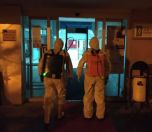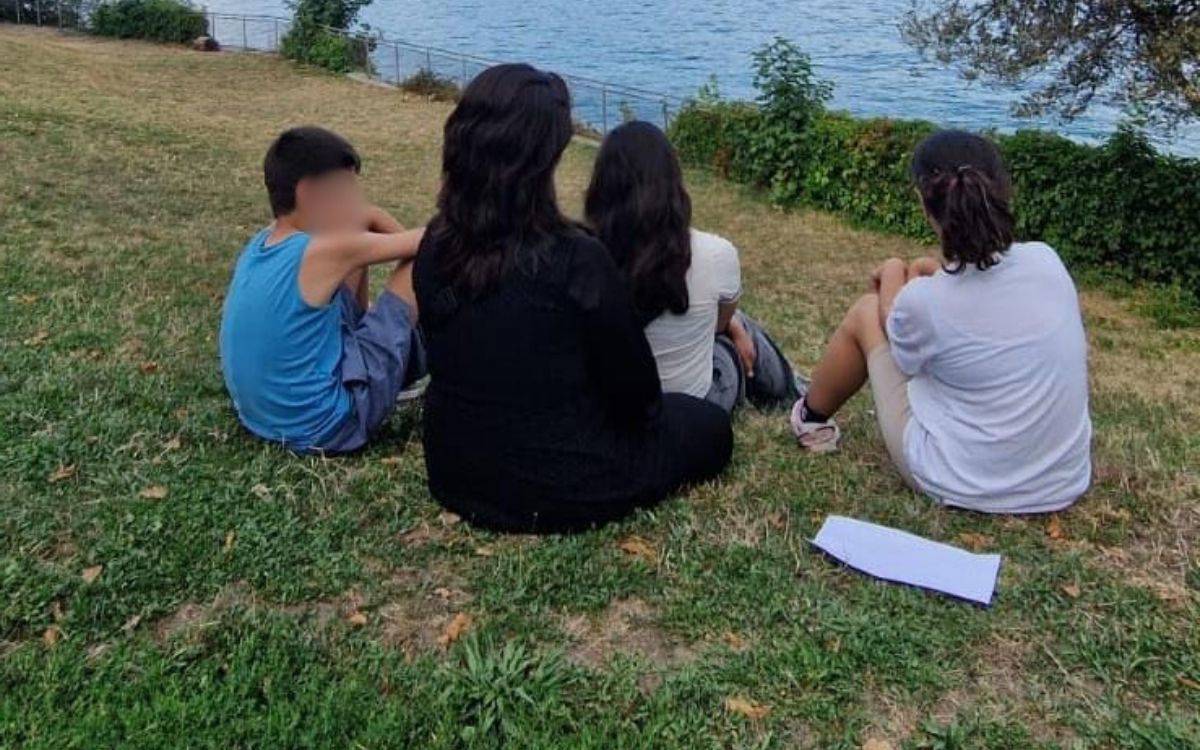The 374th sit-in for ill prisoners in İstanbul (Photo: Evrim Kepenek / bianet)
Click to read the article in Turkish
"They don't do my surgery because of the pandemic. I have intense pain. They take me to the Training and Research Hospital because of my pain. They double handcuff me taking me [to the hospital]. When they bring me back to the prison, they put me in the quarantine room. I have a lot of difficulties there because I can't take care of myself alone. Are you waiting for me to die to act? Hear our voices."
The person who addresses the public, saying, "Hear our voices," in Semire Direkçi (43), who has been in prison for 23 years.
The body of Direkçi, who is held at Diyarbakır Prison, was severely damaged during the hunger strikes in 2019. Her stomach and intestines became nonfunctional. The doctor who treated her took her intestines out of her body and said, "We will do your surgery and put them back six months later." However, the surgery could not be performed because of the pandemic.
Roommates take care of her
Since that day, Direkçi's roommates have been taking care of her. Because of "double handcuffs," she doesn't want to go to the hospital even if she has very intense pain.
She also hesitates to go to the hospital because she has to stay in the quarantine room after that. If there is no other prisoner who is taken to the hospital with her, she has to take care of herself in the quarantine room.
So, Dilekçi's surgery is not performed on the pretext of the pandemic while it has to be done "urgently." When she wants to go to the hospital, she is subjected to another rights violation with double handcuffs.
"She is at risk"
Attorneys Jiyan Kaya and Jiyan Tosun from the Law Office for Legal Assistance Against Harassment in Detention visited Direkçi in the prison last week.
Noting that Direkçi has hypertension and vision problems, the attorneys said, "The doctors don't treat Direkçi. She said she had no staying power. There is a very serious violation of rights. The Diyarbakır Chief Public Prosecutor's Office must find a solution for this issue. At least Direkçi's surgery should be performed."
"It's very difficult for her to stay in prison with her intestines out. The prison is not a hygienic place anyway. The guards have contact with the outside. Semire Direkçi is at great risk. Doctors who took her intestines out for treatment are not taking care of it now because there is a 'pandemic'. Semire expects support from all public," said the attorneys.
Surveillance cameras monitoring toilet doors
Also meeting with other women prisoners in the Diyarbakır Prison, the attorneys said that rights violations in the prison increased in the pandemic time.
There is a 360-degree rotating camera in the fresh air area and prisoners think that it is able to monitor the place where they sleep, according to the attorneys.
"There is also a camera that can see the toilet and bathroom doors. Women are also uncomfortable with this camera. They turn this camera off, but then the women are given disciplinary punishment.
"These cameras watch women 24 hours a day, seven days a week. One of the old women stays in the toilet for five to six minutes and the guards raid the room.
"They objected to these cameras many times and stated that there was a violation of rights, but the prison [administration] did not remove the cameras and gave disciplinary punishment to the women.
"The women, at last, changed the angle of the camera but then the prison administration put an iron cage on the camera. The women were given disciplinary punishment again. The prosecutor, verbally, says, 'The Ministry of Justice gave such an instruction.' When they wanted to see the instruction in written form, it was not shown to them.
"Women are very uncomfortable with the camera. This means a violation of private life. We, as lawyers, will follow this situation. Just like denying Semire Direkçi's access to healthcare, there is an attack on women's private life. Because of the double handcuff application, women don't want to go to the doctor.
"They especially double handcuff women. They want to make this practice common in Diyarbakır Prison and spread it to all prisons.
"Prison visits are still not done. On the pretext of the pandemic, rights violations have increased in prisons and no information reaches outside. We have very serious concerns about this issue."
İHD: There 1,594 ill prisoners in TurkeyAs of April, there were 1,564 ill prisoners in Turkey with 591 prisoners in serious condition, according to a report by the Human Rights Association (İHD). The association listed the following recommendations about the issue: * All seriously ill prisoners must be immediately released based on a report issued by any well-equipped hospital, their treatment must be accompanied by their families and their health insurance must be met by the state; * The Forensic Medical Institution must no longer be the sole and final authority to issue reports for deferment of execution due to health; * The discretionary power of public prosecutors in ruling for the deferment of execution must be abolished and the execution of sentences must be deferred based on the medical reports issued by hospitals; * The criteria of 'posing threat to social security' standing in the way of ill prisoners' release must be removed from the law; * Hindering the release of ill prisoners, the clause stipulating that 'execution shall not be suspended' in the Article 25 of the law on criminal execution and the clause no. 16 of the Article 107 must be abolished; * In accordance with the European Court of Human Rights (ECtHR) verdict of Kaytan vs. Turkey, a suitable date for release must be set in the legal status summaries of prisoners by considering their age and health conditions; * The aspects indicated by the ECtHR in Gülay Çetin vs. Turkey verdict must be abided by and it must be remembered that any failure to release ill prisoners violates the Article 3 of the ECHR; * The circular governing the President's authority to release prisoners for reasons of health must be amended, the Forensic Medical Institution must no longer be the sole determinant authority and the President must use his authority for seriously ill prisoners without making any exceptions. |
(EMK/VK)





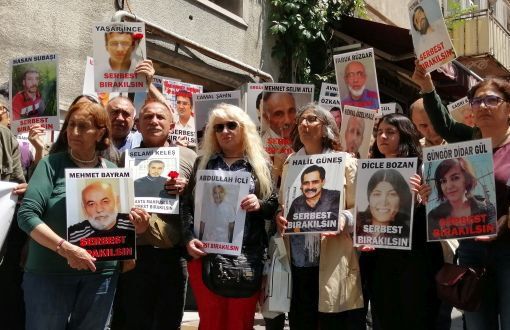

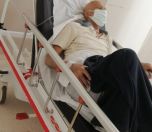

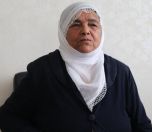
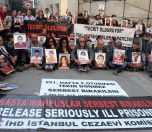

-132.jpg)
